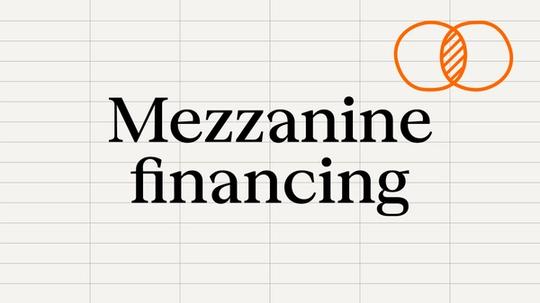What Is Mezzanine Financing?


How mezzanine financing bridges the gap between debt and equity.
- Mezzanine financing is a hybrid of debt and equity financing.
Mezzanine financing is a type of hybrid financing that combines elements of debt and equity. It is often used by companies that have maxed out their traditional borrowing facilities but need capital to finance growth, acquisitions or other specific projects without giving up a significant amount of control or equity.
Debt financing alone is particularly risky for early-stage businesses that are not yet profitable since they will need to use any income to keep up with repayments. Equity financing requires parting with an ownership stake in the business, potentially giving away an element of control.
For borrowers, mezzanine financing is more expensive than senior debt (borrowed money that a company must repay first if it goes out of business). It has a higher annual interest rate, but it gives businesses access to additional capital under more flexible terms. One big advantage is that mezzanine debt tends to be interest-only prior to maturity, and interest repayments are generally tax-deductible as a business expense.
Mezzanine agreements typically include equity-like features such as warrants or conversion rights, allowing lenders to convert debt into equity under certain pre-agreed scenarios. However, these offer limited equity dilution to the company compared with issuing new equity.
From a lender’s point of view, mezzanine financing is generally viewed as a higher-risk investment than debt financing since investments are subject to operational risk and investors may not recoup their money if a business goes bankrupt or is liquidated – mezzanine debt is subordinate to senior debt, which is paid off first. However, the additional risk means that mezzanine debt attracts a higher rate of return, while the equity element means investors have the potential to participate in the company’s future upside without taking on full equity risk.
Terms by which lenders can convert debt into equity will be defined in each financing agreement and can include scenarios such as when a company hits specific performance milestones, reaches a certain valuation, when a pre-agreed timeframe is up or even when a default on payment obligations happens.
ThinQ by EQT: A publication where private markets meet open minds. Join the conversation – [email protected]




